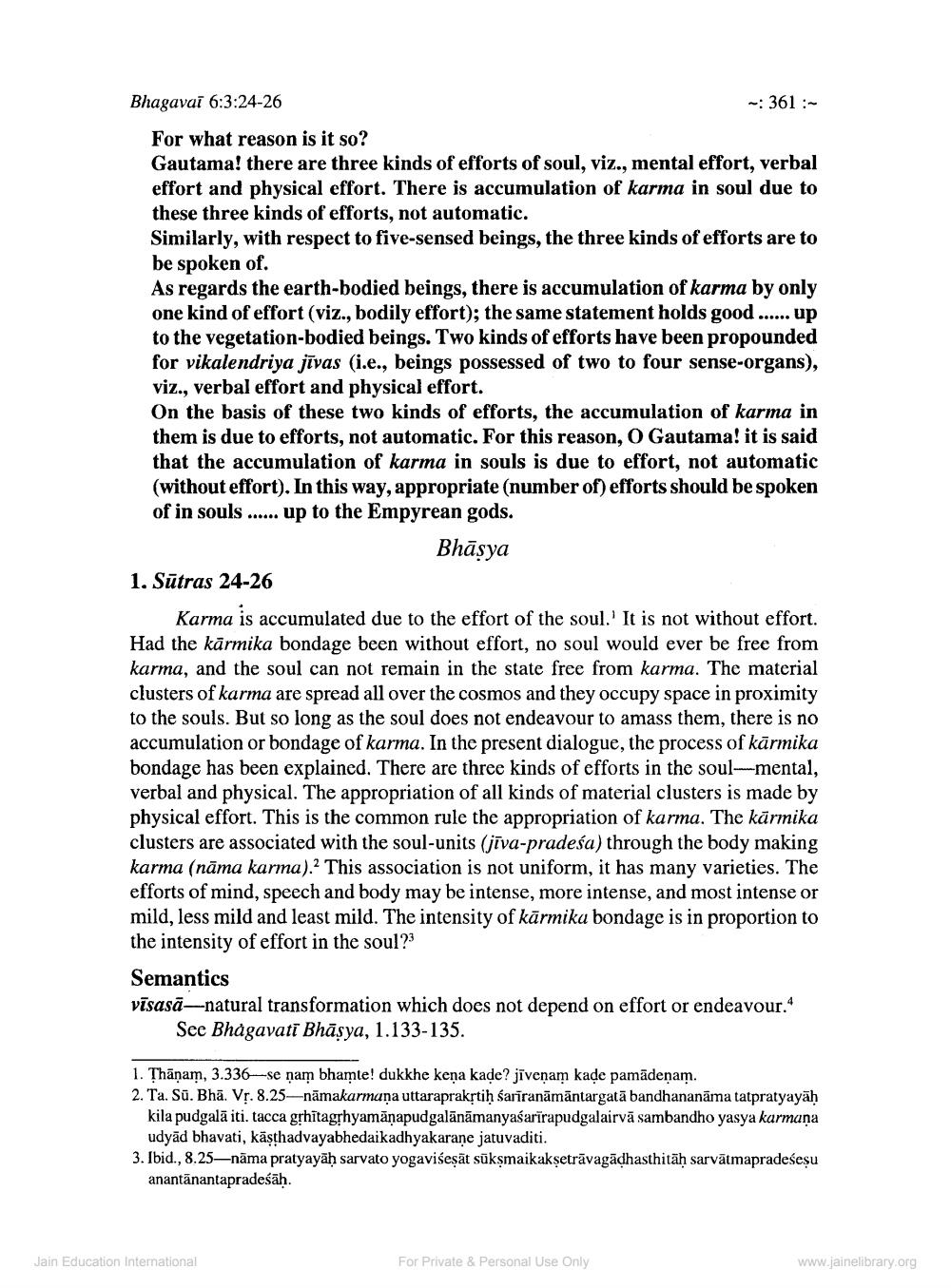________________
Bhagaval 6:3:24-26
For what reason is it so?
Gautama! there are three kinds of efforts of soul, viz., mental effort, verbal effort and physical effort. There is accumulation of karma in soul due to these three kinds of efforts, not automatic.
Similarly, with respect to five-sensed beings, the three kinds of efforts are to be spoken of.
As regards the earth-bodied beings, there is accumulation of karma by only one kind of effort (viz., bodily effort); the same statement holds good...... up to the vegetation-bodied beings. Two kinds of efforts have been propounded for vikalendriya jīvas (i.e., beings possessed of two to four sense-organs), viz., verbal effort and physical effort.
On the basis of these two kinds of efforts, the accumulation of karma in them is due to efforts, not automatic. For this reason, O Gautama! it is said that the accumulation of karma in souls is due to effort, not automatic (without effort). In this way, appropriate (number of) efforts should be spoken of in souls...... up to the Empyrean gods.
Bhāṣya
~: 361
1. Sūtras 24-26
Karma is accumulated due to the effort of the soul.' It is not without effort. Had the kärmika bondage been without effort, no soul would ever be free from karma, and the soul can not remain in the state free from karma. The material clusters of karma are spread all over the cosmos and they occupy space in proximity to the souls. But so long as the soul does not endeavour to amass them, there is no accumulation or bondage of karma. In the present dialogue, the process of karmika bondage has been explained. There are three kinds of efforts in the soul-mental, verbal and physical. The appropriation of all kinds of material clusters is made by physical effort. This is the common rule the appropriation of karma. The karmika clusters are associated with the soul-units (jiva-pradesa) through the body making karma (nāma karma). This association is not uniform, it has many varieties. The efforts of mind, speech and body may be intense, more intense, and most intense or mild, less mild and least mild. The intensity of karmika bondage is in proportion to the intensity of effort in the soul?"
Semantics
vīsasa-natural transformation which does not depend on effort or endeavour." See Bhagavati Bhāṣya, 1.133-135.
1. Thāṇam, 3.336-se nam bhamte! dukkhe kena kade? jiveṇam kade pamādeṇam.
2. Ta. Sū. Bhā. Vṛ. 8.25-nāmakarmaṇa uttaraprakṛtiḥ śarīranāmāntargatā bandhananāma tatpratyayāḥ kila pudgalā iti. tacca grhitagṛhyamaṇapudgalānāmanyasarirupadgalairvä sambandho yasya karmaṇa udyad bhavati, kästhadvayabhedaikadhyakarane jatuvaditi.
3. Ibid., 8.25-nāma pratyayaḥ sarvato yogaviseṣāt sūkṣmaikakṣetrāvagadhasthitaḥ sarvātmapradeseṣu anantānantapradeśaḥ.
Jain Education International
For Private & Personal Use Only
www.jainelibrary.org




